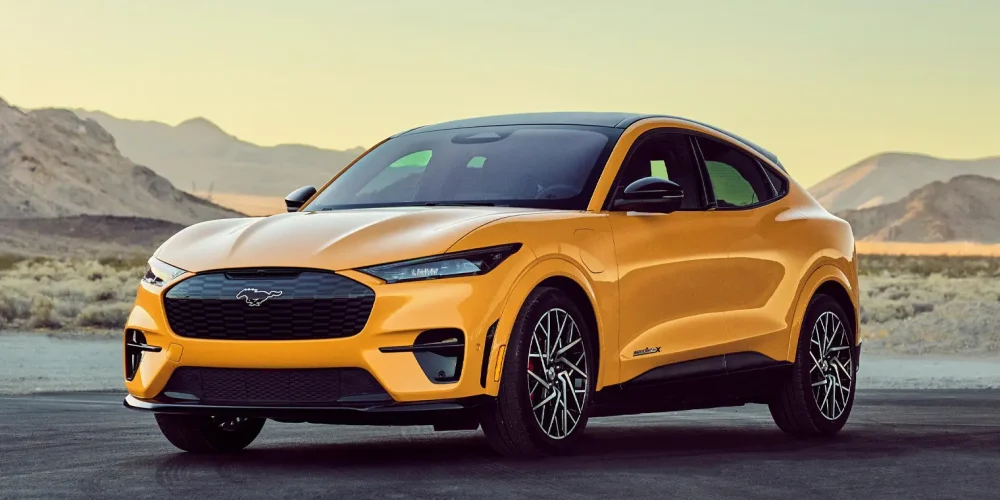
Everything You Need to Know About Charging a Mach-E
The Ford Mustang Mach-E is a stylish and high-performance electric SUV that has gained popularity among EV enthusiasts. Understanding how to charge Mustang Mach-E efficiently is crucial for maximizing battery life and ensuring a smooth driving experience. This guide will cover various charging options, estimated charging times, costs, and compatibility with Tesla Superchargers, helping owners make the most of their EV charging experience.
Key terms covered in this guide include Mustang Mach-E battery capacity, charging power, charging times, cost analysis, and Tesla Supercharger compatibility.
1. Mustang Mach-E Model Overview
The Mustang Mach-E comes in multiple trims, each offering different performance levels, battery capacities, and range estimates.
Performance Specifications

The Mustang Mach-E delivers impressive performance with 0-60 mph acceleration ranging from 3.3 to 4.1 seconds, significantly outpacing traditional gasoline-powered performance vehicles. Whether it’s the powerful GT eAWD trim or the more balanced Select RWD, the Mach-E offers an exhilarating driving experience with instant torque and smooth electric power delivery.
Battery and Charging Power
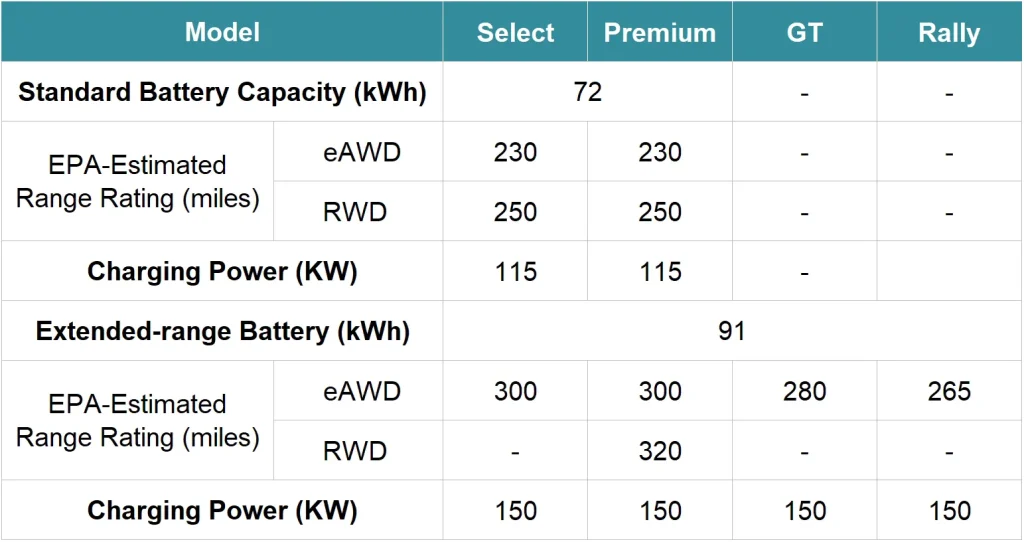
The Mustang Mach-E is available in two battery configurations:
- Standard Range: Equipped with a 72 kWh battery pack, offering a balance between efficiency and cost.
- Extended Range: Features a 91 kWh battery pack, providing longer travel distances per charge.
The estimated EPA-rated range varies by model, spanning from 230 miles on lower trims to 320 miles on extended-range models. For charging, the standard battery supports a maximum charging power of 115 kW, while the extended battery supports up to 150 kW, allowing for faster DC fast charging sessions.
Type of Connector (Charging Gun) and Charging Power
The Mach-E supports J1772 and CCS1 connectors for home and fast charging.
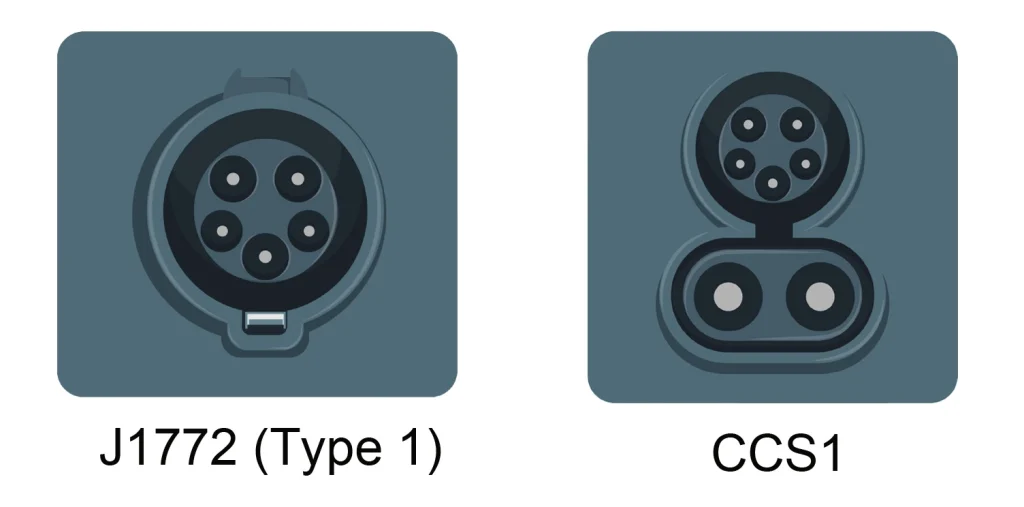
2. How to Charge a Mustang Mach-E
Charging Options
- Level 1 (120V): Standard household outlet; slowest option.
- Level 2 (240V): Home and workplace charging; faster than Level 1.
- DC Fast Charging: High-speed public charging stations for quick top-ups.
Recommended Charging Methods
- Home Charging: Ideal for daily commutes using Level 1 or Level 2 chargers.
- Public Charging: Best for long trips using DC fast chargers.
- Battery Health Tips: Avoid frequent deep discharges and fast charging beyond 80%.
3. Mach-E Charge Time
The charge time for a Mustang Mach-E depends on the charging method, battery size, and environmental factors such as temperature and charger availability.
Key Factors Affecting Charge Time
- Battery temperature: Cold weather can slow charging speeds.
- Battery preconditioning: Helps improve efficiency, especially in colder climates.
- Charger power output: Higher power levels result in faster charging.
Summarizing the data from our analysis:
The Fuel Economy for Mustang Mach-E is from fueleconomy.gov.
The calculation is based on ideal condition which might vary a littble bit from actual charging condition.
We didn’t calculate charging from 0-100% because the charge time would be much longer from 0-10% and 80-100%.

- Level 1 Charging (120V): Slowest method, requiring 30+ hours for a full charge.
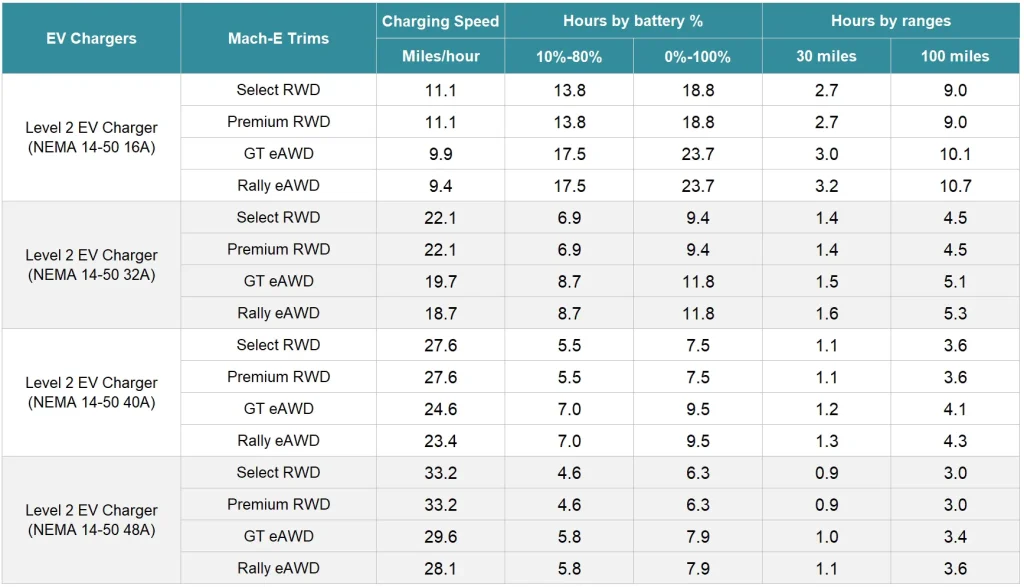
- Level 2 Charging (240V): Offers faster speeds, with times ranging from 4.6 to 17.5 hours depending on battery size and charger output.

- DC Fast Charging (CCS1): Can charge from 10% to 80% in approximately 32-36 minutes, making it the preferred option for long trips.
4. Cost to Charge a Mach-E
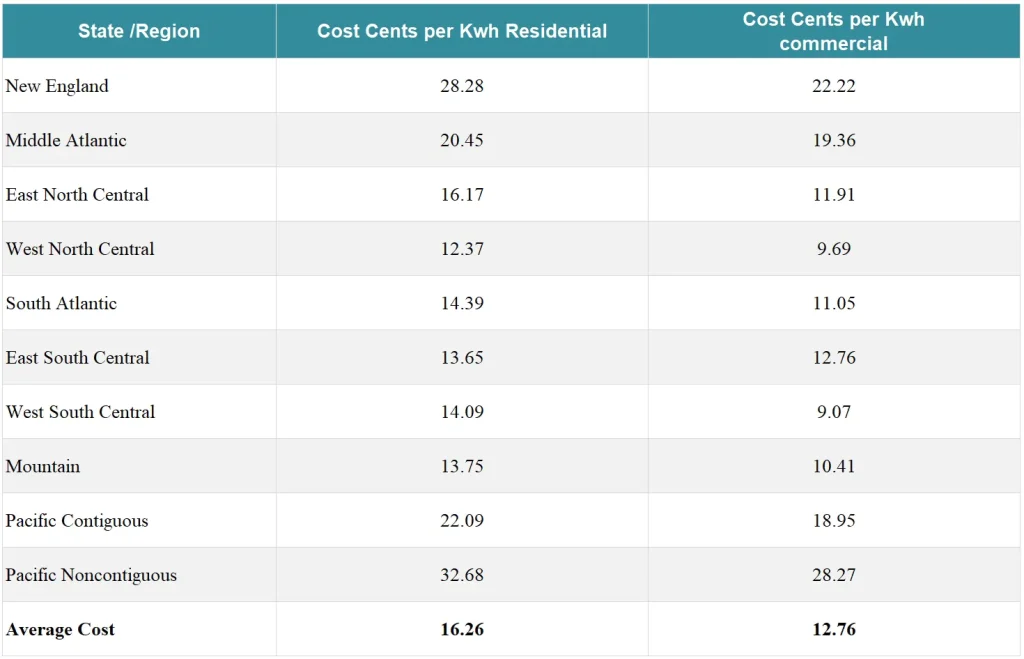
Charging costs vary depending on electricity rates in different regions, charging location, and vehicle efficiency.
Key Cost Considerations
- Home charging is typically more affordable, with average rates around $0.16 per kWh.
- Public Level 2 charging may cost slightly more, depending on provider pricing.
- DC Fast Charging at non-Tesla stations (CCS1 charging station) is usually higher, especially at peak hours. The cost is from $0.3 to $0.6 per kWh.
- Tesla Supercharger rates vary from locations, but average rate is around $0.35 per kWh.
Average Home Charging Cost

Based on our analysis, the estimated home charging cost per mile for a Mustang Mach-E ranges from $0.05 to $0.08 depending on the model and electricity rate. The cost per 100 miles can range from $5.81 to $6.86, with performance-oriented trims consuming more energy.
Average Charging Cost at CCS1 Charging Station

The estimated cost per 100 miles at CCS1 fast charging stations ranges from $9.2 to $10.9. In comparison, a mid-priced gasoline vehicle costs around $11 per 100 miles in fuel expenses. This means that Mach-E owners using DC fast charging will only see a slight cost advantage over gasoline-powered vehicles in terms of fuel expenses.
5. Mach-E Charging at Tesla Superchargers
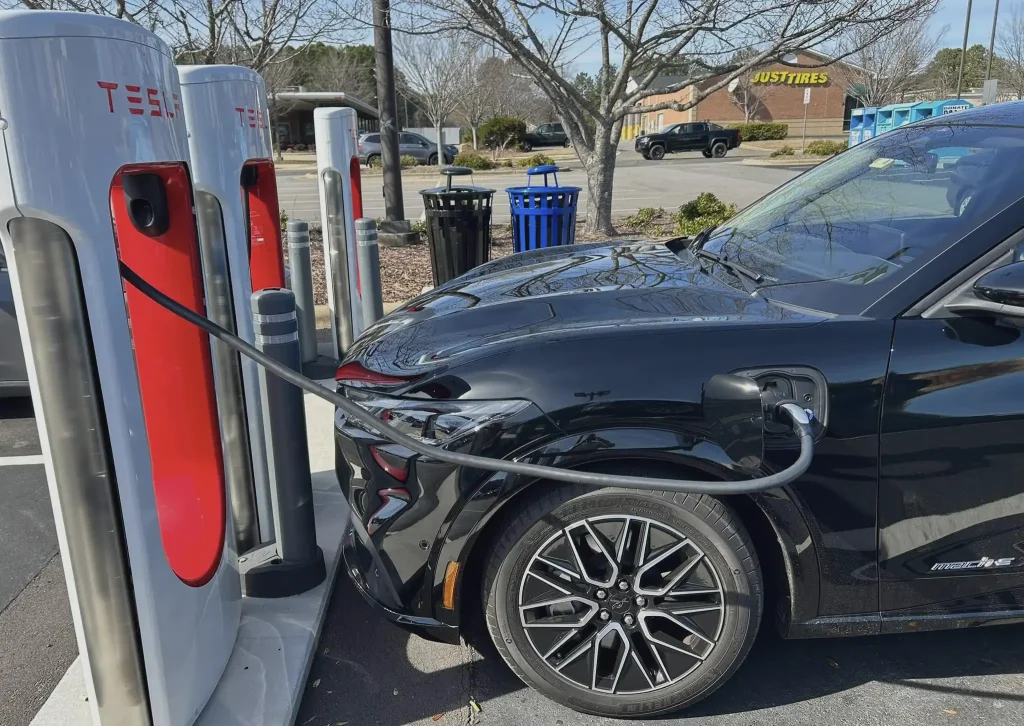
Ford Mach-E owners now have access to Tesla’s Supercharger network, but compatibility requires a tesla to ccs1 adapter. Steps to charge:
- Ensure your vehicle supports NACS (North American Charging Standard).
- Use the FordPass app to locate Tesla Superchargers.
- Plug in using an adapter and follow the app’s instructions.
Pros & Cons of Using Tesla Superchargers
✅ More charging locations available. ✅ High-speed charging. ❌ Requires an adapter. ❌ Higher costs than standard CCS stations.
6. How to Charge a Mustang Mach-E: Conclusion
Charging a Mustang Mach-E effectively requires choosing the right charger based on your driving needs. Home Level 2 charging is the best for daily use, while DC fast charging is ideal for long trips. With Tesla Supercharger access, Ford EV owners now have more options than ever. By understanding charging times, costs, and best practices, you can maximize efficiency and battery longevity.
